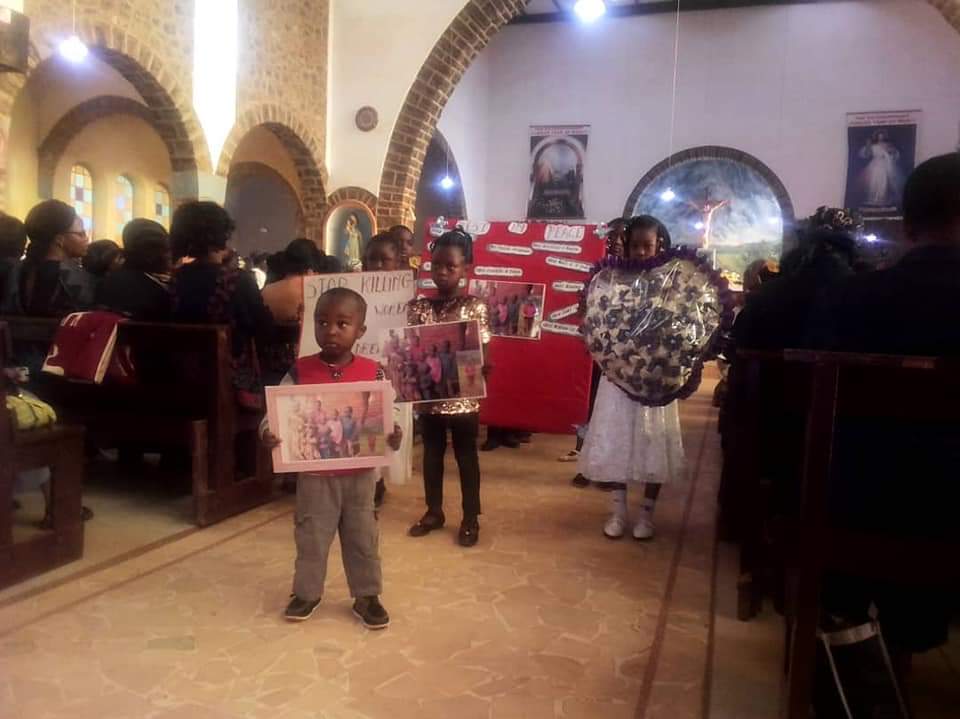Annoying Ambazonians: Francophone Soldiers Accused of Killing Women, Children Appear in Court
A few civilians were at a military tribunal in Yaounde on Thursday to witness the trial of three soldiers accused in the February 14 Ngarr-buh massacre of women and children.
Gabriel Foyong said he lost two family members and wanted to see justice served.
“We are not asking for something much from the government of Cameroon,” he said. “What we require is just justice, that justice should take its rightful course so that such incidents may be avoided. Honestly, government needs to sit up, because most of the people dying are the innocent ones. Ngar-buh is a very perfect example.”
The defendants pleaded not guilty before the session was adjourned. The presiding judge, Yvonne Leopoldine Akoa, did not say when the proceedings would resume.
Human Rights Watch described the Ngarr-buh killings as one of the worst incidents of abuse by security forces in the history of Cameroon’s separatist crisis. The rights group said 17 members of a vigilante group and a separatist fighter were also charged and remain at large.
Ilaria Allegrozzi, senior central African researcher for Human Rights Watch, said the trial was expected to be an important step toward tackling impunity.
“We call for a public trial where all participants can feel safe and comfortable that their security will be guaranteed, and this will be key to really help end the cycles of violence and impunity that have affected the Anglophone regions for the past four years,” Allegrozzi said.
21 deaths
Human Rights Watch said 21 civilians, including 13 children and a pregnant woman, were killed. Five houses were torched, property was looted and some residents beaten.
Allegrozzi said the killings and torture were not isolated cases but part of a long history of military abuses in Cameroon’s English-speaking regions.
In a press release, government spokesperson Rene Emmanuel Sadi said the central African state would make sure the trial was fair and that those found guilty would be punished.
Authorities initially denied that troops were responsible for the massacre, describing the accusation as propaganda from separatists to discredit government forces. But following international pressure, Cameroon President Paul Biya ordered investigations. The central African state later acknowledged troops were responsible.
The government promised to give what it called a decent burial for the dead and to compensate the bereaved families.
But Edward Nfor, a member of the Donga Matung administrative unit where Ngarr-buh is located, said the government had not honored its promise.
“I think a commission, a special commission should be created by legislation to actually look into this Ngarr-buh incident,” Nfor said. “The international community is watching. Those of us from the area are watching and listening. Placing a military base in Ngarr-buh does not solve the situation.”
Armed groups have been fighting to create an independent state in the English-speaking North West and South West regions, separate from the rest of Cameroon and its French-speaking majority.
Violence in the English-speaking regions since 2016 has claimed more than 3,000 lives and caused the displacement of more than 430,000 civilians, according to the United Nations.
Source: VOA





